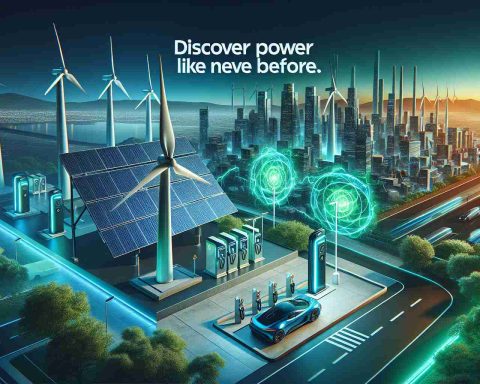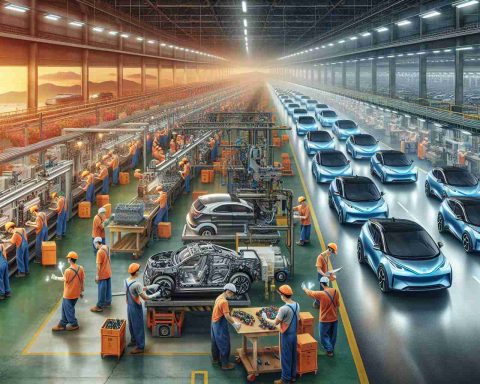Concerns Amidst a Shifting Political Landscape
South Korean companies are re-evaluating their ambitious $54 billion strategy to establish electric vehicle (EV) battery plants across the US, faced with rising uncertainties. With President-elect Donald Trump potentially reconsidering established tax incentives for electric vehicles, many firms have paused their projects amid fears of declining EV demand.
Reports suggest that Posco Future M, which supplies cathodes to General Motors, is delaying its Quebec plant’s completion, citing local conditions. Industry experts indicate that companies are highly attentive to Trump’s stance on EV subsidies, fearing substantial cuts that could jeopardize job security and reverse advances made in diversifying the EV supply chain from China.
South Korea’s leading battery manufacturers, including Samsung SDI, LG Energy Solution, and SK On, have proposed 15 plants across the US, aiming to generate over 20,000 jobs. This drive comes largely in response to the Inflation Reduction Act, which initially bolstered investment conditions. However, should tax credits be eliminated, it could pose severe risks to these companies, which are already grappling with decreased EV demand and plummeting battery material prices.
While some voices express optimism that support for Korean firms will remain intact, the looming threat of increased competition from Chinese manufacturers remains a critical concern. With the stakes high, these companies are closely monitoring any shifts that could affect their investments and the overall landscape of the EV market in the US.
Challenges and Opportunities for South Korean EV Battery Manufacturers in the US
As the global transition to electric vehicles accelerates, South Korean companies are navigating a complex and evolving landscape, re-evaluating significant investments in US EV battery manufacturing.
South Korea’s battery giants, including Samsung SDI, LG Energy Solution, and SK On, initially planned to establish multiple production facilities across the United States, with a collective investment exceeding $54 billion. This strategic move aimed to capitalize on the growing demand for electric vehicles and to create over 20,000 jobs. However, current political uncertainties and potential policy changes are prompting these companies to reassess their plans.
Market Trends and Innovations
The EV market is currently experiencing fluctuations in demand and pricing for critical battery materials. Companies are closely monitoring these trends, especially with predictions indicating that global EV sales are set to reach a staggering 30 million units by 2030. Innovations in battery technology, such as solid-state batteries and more efficient lithium-ion formulations, are also positioning South Korean firms for potential competitive advantages.
Pros and Cons of South Korean Investments
Pros:
– Job Creation: The establishment of battery plants in the US could lead to a significant number of new jobs.
– Supply Chain Diversification: This move aids in reducing reliance on Chinese batteries, enhancing national security and economic stability.
– Technological Innovation: South Korean companies are at the forefront of battery technology advancements, positioning themselves for future growth.
Cons:
– Political Uncertainty: Changes in government policies and potential reductions in EV subsidies pose risks to profitability.
– Increased Competition: Chinese manufacturers are aggressively expanding in the EV market, potentially overshadowing South Korean firms.
– Market Volatility: Fluctuations in battery material prices may affect margins and long-term sustainability of investments.
Use Cases and Compatibility
The battery plants are not just about production; they are integral to wider applications in renewable energy and grid storage solutions. As electric vehicles become more prevalent, the synergy between vehicle batteries and energy storage technologies may offer new revenue streams for manufacturers.
Security and Sustainability
The drive for sustainability has led many companies to adopt eco-friendly manufacturing processes, focusing on recycling and minimizing waste. South Korean firms are exploring partnerships to improve battery recycling technologies, which will not only serve environmental goals but also reduce the need for raw materials.
Predictions for the Future
Industry analysts project continued growth in the EV sector, driven by legislative support and advancements in technology. However, the market dynamics may shift based on political decisions regarding subsidies and tariffs. South Korea’s response to these changes will be crucial in maintaining its competitive edge in the rapidly evolving EV market.
For more about electric vehicle innovations and market developments, visit Bloomberg for the latest insights.








